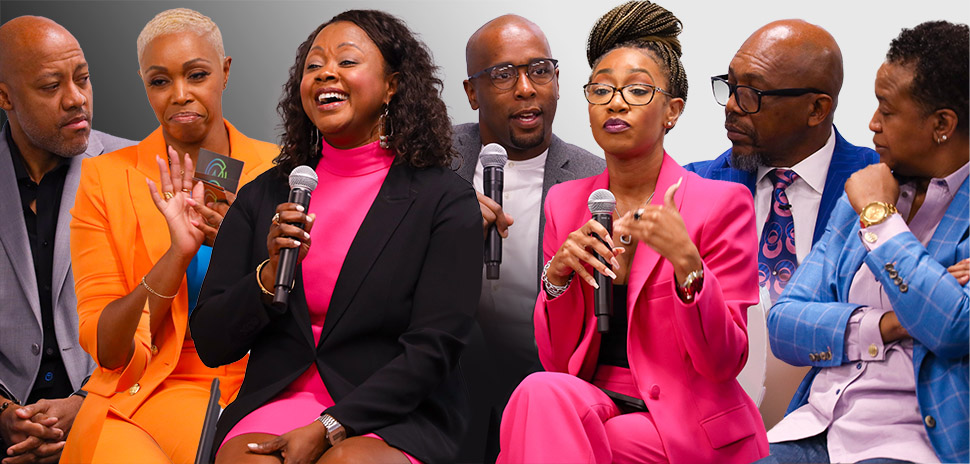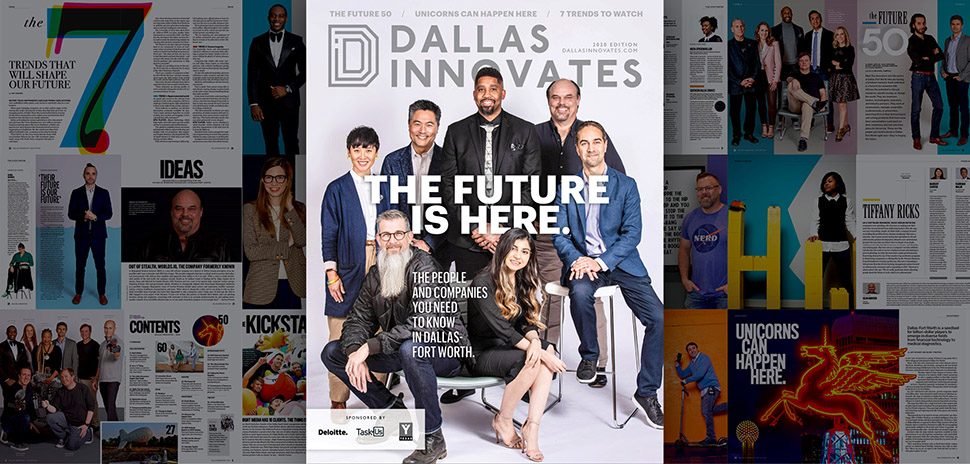Capital from lenders focused on underserved communities got West Dallas fitness studio PureNRG Cycle off the ground last year. Now, PureNRG co-founders Greer Christian and Janelle Wright are planning to “skyrocket” their indoor cycling and strength training boutique by licensing their startup’s name and idea to franchisees.
Christian believes that franchising—a contractual agreement allowing the franchisee to use a franchisor’s brand and business methods in exchange for start-up costs and an annual fee—will create an ecosystem making it possible for more families to create generational wealth.
“We’re black-owned, we’re women, and we understand the challenges that come with black families,” she says.
PureNRG is one of more than 100 businesses that have received educational, financial, or networking assistance from the Mayor’s Franchise Initiative, a program started last year by Dallas Mayor Eric Johnson.
Led by Lathrop GPM franchise and distribution lawyer Carlos White, the pioneering program is aimed particularly at growing the number of franchisors and franchisees in the city’s economically challenged southern sector.
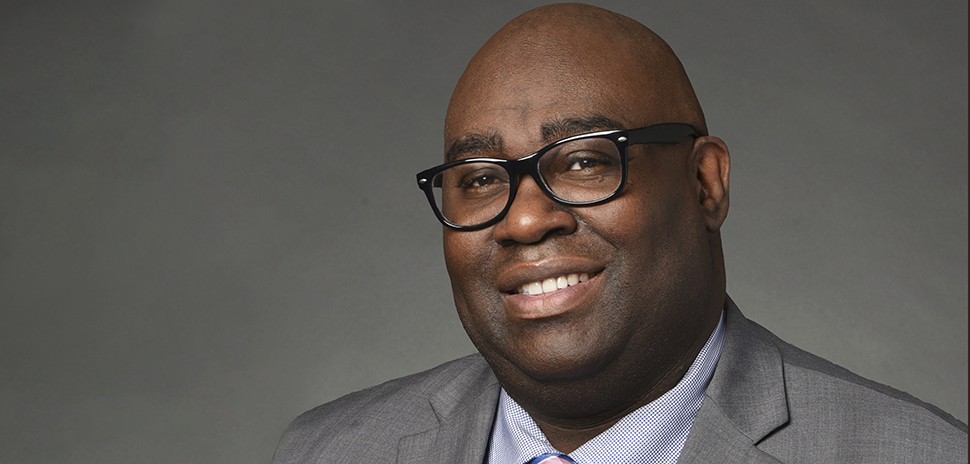
Carlos White, a Dallas attorney who specializes in franchise law, was appointed Franchise Impact Ambassador and chair of Dallas Mayor Eric Johnson’s Franchise Initiative in 2022.
The initiative has three main components. Its Franchise Exchange hosts educational events on topics including real estate and marketing. Its Franchisor and Franchisee accelerators, which will get underway next year, will concentrate on launching existing businesses into franchising and setting up entrepreneurs to capitalize on franchise opportunities.
Texas is already the fastest-growing U.S. state in terms of establishing franchises, according to a 2023 report by the International Franchising Association. So, the Dallas mayor believes teaching entrepreneurs about the business model could create more local jobs and jump-start economic development here, White said.
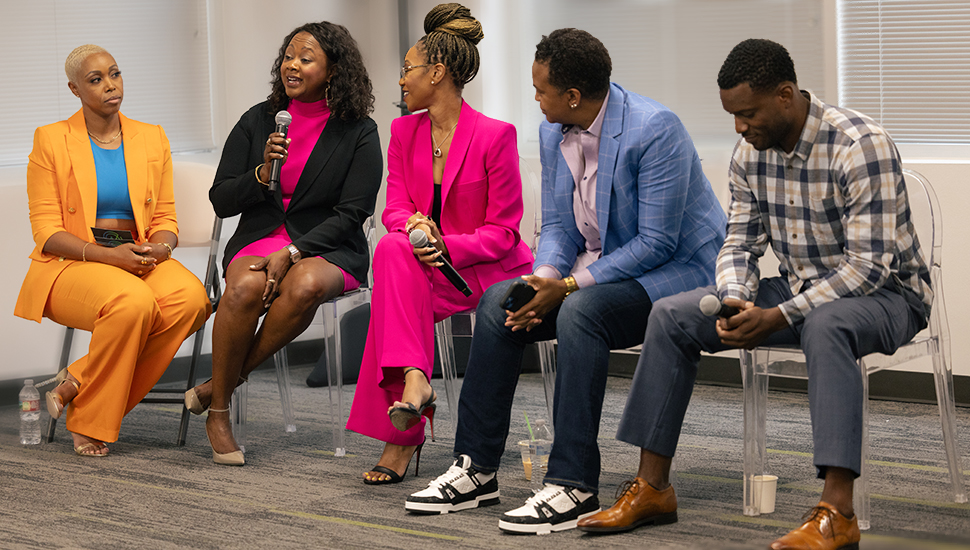
From left: Janelle Wright (PureNRG Cycle), Greer Christian (PureNRG Cycle), Jessica Taylor (Ezra Coffee), Kimberly Evans (JPMorgan Chase), and Kevin Knight (Urban Events Global) at September’s DSW2023. [Source photo via The DEC Network]
Elevating the level of service
An entrepreneurial-minded franchisee who understands the local market will have a leg up in developing and scaling a business, White explained during several sessions he led about franchising at Dallas Startup Week in September.
“To me, that’s the secret sauce of franchising,” said White, whose title with the initiative is Franchise Impact Ambassador. “As a franchisor, who do you think is more incentivized to increase your revenue and profitability: a manager that’s paid a salary, or an entrepreneur that can help you grow your company?”
Calvin Golden, who helped start the Addison-based chicken-wing restaurant Wingstop—and since has sold and acquired for himself multiple Wingstop franchises—is a case in point. Golden’s store in the competitive Oak Cliff market set itself apart with its elevated level of service, he recalled.
“I told our staff, ‘We’re going to address everyone, from 8 to 80, as Mr. or Miss. So, when you came in and placed an order and we got your name, we would say ‘Mr. Smith, how are you today? Mr. Smith, your order will be ready in 15 minutes.’ After a while, we’d built a pretty good fan base—not just because the chicken was good, but because people wanted to come in just to hear us call them by their name.
“The best advertisement we had was one customer makes two, two makes four, and four makes 10,” Golden said. “And that’s how our business grew.”
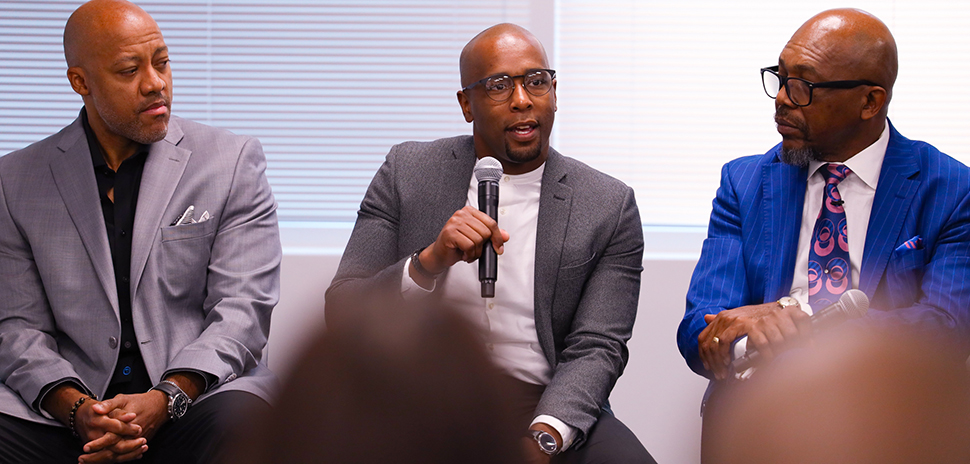
From left: Anthony Williams (AltCap), Calvin Golden (Wingstop Developer), and Mario Williams (City of Dallas Small Business Center) [Photo: Red Wave Media]
Here are other insights gleaned from panelists during the Startup Week sessions:
- Hallie Williams, founder and CEO of franchise brokerage firm Right New Door, said franchising is increasingly popular. “A lot of people are leaving corporate America, a lot of baby boomers are too young to actually ‘retire retire,’ and franchising is an entrepreneurial opportunity,” he said. Also, “a lot of business owners are now purchasing franchises to complement their existing businesses.”
- Lorri Dotson, founder and CEO of Grand Prairie-based cleaning firm Vision Group Cleaning, said anyone looking to franchise their business should have a solid infrastructure in place first. In addition to operating with quality and integrity, she said, companies need a dynamic operating team as well as smart, workable plans in areas including HR and intellectual property.
- Jessica Taylor, co-founder and CEO of Dallas-based specialty coffee brand Ezra Coffee, told how she sacrificed—by eating out less, for example—until her product took off after winning shelf space in H-E-B grocery stores. Taylor said she also forged “great relationships” with banks like JPMorgan Chase and Comerica, pursuing mentor relationships, social-media opportunities, and even free office space they offered.
- Kimberly Evans, west region lead/franchise and restaurant finance for JPMorgan Chase, applauded Taylor, saying that entrepreneurship is not “about being black or being a woman or being a Latina or a veteran.” Instead, she said, it’s about excellence, hard work, moral character—and sacrifice. “Capital comes from different places at different stages of your business,” Evans said. “Some of that capital comes from you. So, take that Mercedes back and get a cheaper car. Save $20 or $30 a month from your corporate job. Get out of this mindset that everyone owes you for this idea that you have. Get out there and build your ecosystem.”
- Kendall Hill, founder, president, and CEO of nonpartisan community group Project Texas, said it’s important for entrepreneurs to “remain visible” with local and state officials, in order “to show them what you’ve been doing with the assistance they gave. What I found in my experience is the best person to talk to in these offices is not the official’s chief of staff, but their ‘go director,’ and if not their ‘go director,’ their office assistant. Because they keep the office moving.”
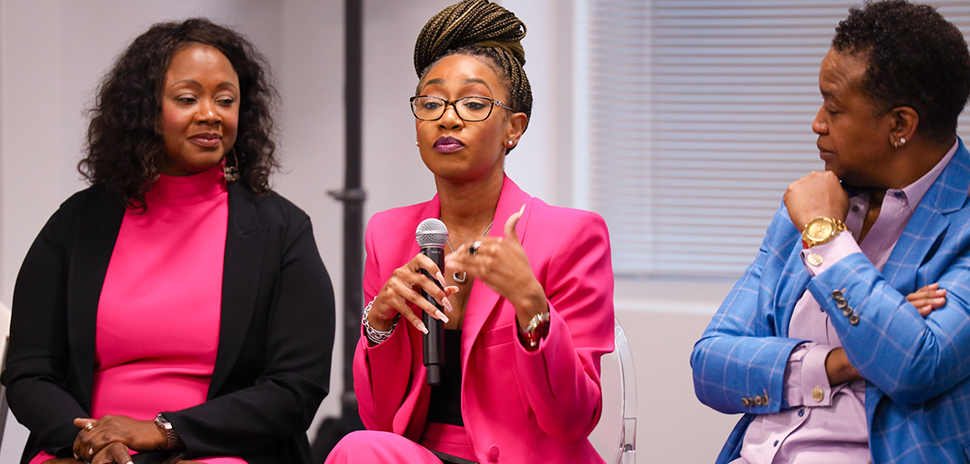
From left: Greer Christian (PureNRG Cycle), Jessica Taylor (Ezra Coffee), and Kimberly Evans (JPMorgan Chase) [Photo: Red Wave Media]
A ‘Great Awakening’ is seen
White said franchising offers a good way to spread the wealth.
“How do you make ROI so that our Hispanic and Latino brothers and sisters and our white brothers and sisters as well as African American brothers and sisters make money all at the same time?” he said. “Minority-owned businesses have to be owned 51% by minorities, but that doesn’t mean you can’t find investors who aren’t minorities.
“A lot of these large companies want to deal with businesses that can scale; they don’t have time to deal with one- and two-offs. But, if they can connect with a franchisee, you can increase revenue along those lines,” White said.
“That’s the great awakening I’m beginning to see. There’s a lot of untapped opportunity with respect to franchising, and especially with respect to multiculturalism, that’s been overlooked.”
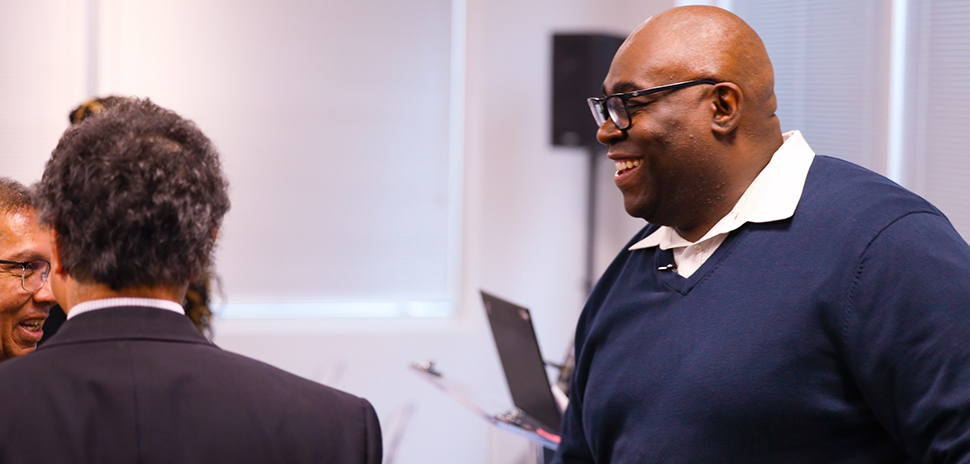
Carlos White (right) talking with entrepreneurs at Dallas Startup Week. [Photo: Red Wave Media]
To date, White said, the Mayor’s Franchise Initiative has assembled an advisory board of franchising experts that includes Tim Williams, chief franchise officer of the $20 million (annual revenue) Williams Chicken company in southern Dallas.
The initiative has also exposed entrepreneurs to successful operational, marketing, and legal strategies, and helped them file for more than $1.5 million in overlooked tax credits to help grow their businesses.
In addition, White said, the initiative has partnered with AltCap, a community development financial institution. AltCap offers entrepreneurs up to $250,000 in debt financing and $1 million in revenue or equity-based financing.
“Franchising is not a panacea,” White said at a city event in August.
One suspects, though, that it sure can’t hurt to give it a try.

Franchise panelists at DSW2023 in September. From left: Janelle Wright (PureNRG Cycle), Greer Christian (PureNRG Cycle), and Jessica Taylor (Ezra Coffee) [Photo: Red Wave Media]
![]()
Get on the list.
Dallas Innovates, every day.
Sign up to keep your eye on what’s new and next in Dallas-Fort Worth, every day.

